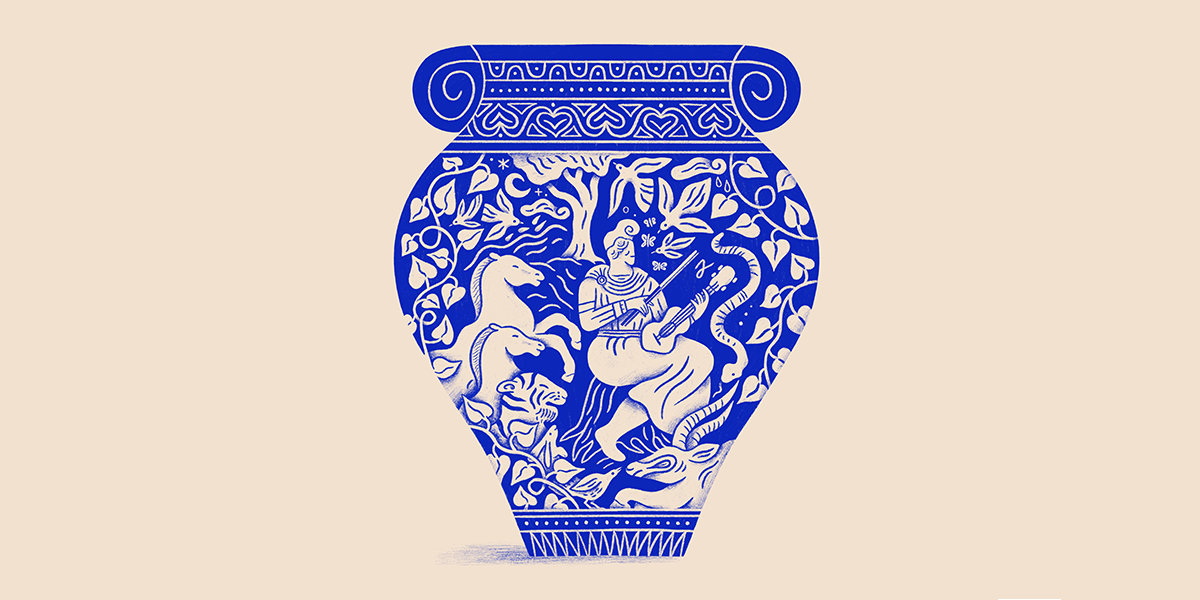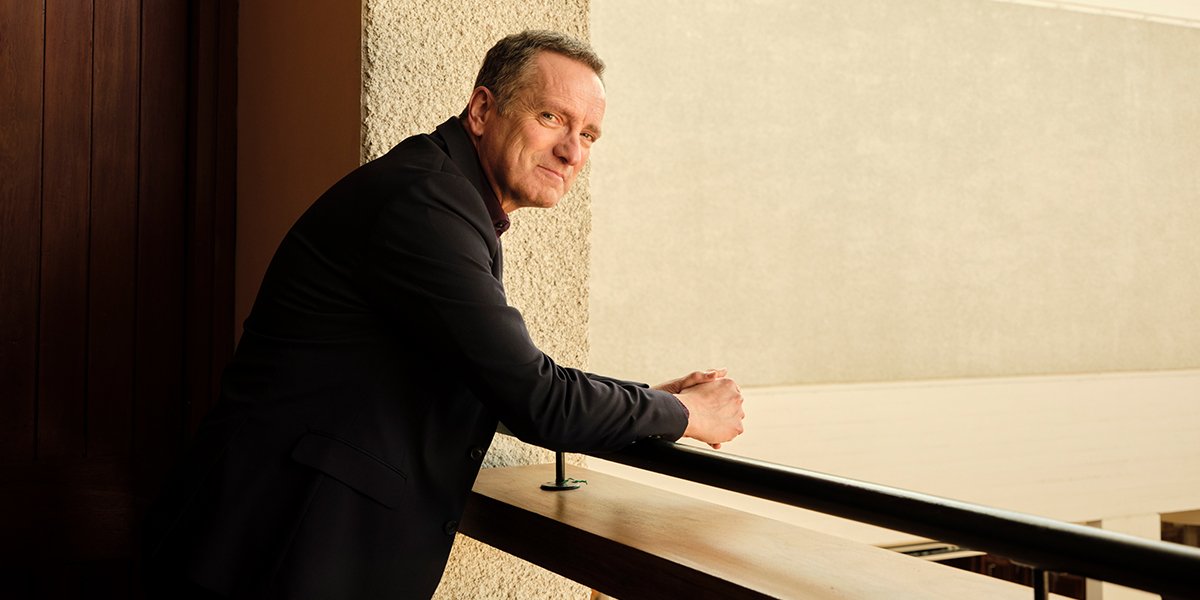A History of History
Cambridge has been teaching History for 300 years. In that time, historians have changed their minds on everything from what the Romans did for us to how dark the Dark Ages really were. So why is History more hotly contested now than ever?
Through its long existence, the process and discipline of History have been fiercely contested. Who gets to tell the stories, and whose stories are worth telling? When accounts conflict, whose do we believe? Can agreedupon ‘history’ even exist, or is the best that can be managed a mosaic of partial ‘histories’? Historians have changed their minds on many key issues, from what the Romans did for us to how dark the Dark Ages really were. And that matters, because history forms the basis on which nations build identity, shared values and a sense of purpose.
“If you have any serious desire to understand how human societies work, you have to engage with history,” says Helen McCarthy, Professor of Modern and Contemporary British History. “And it’s also about comprehending specific aspects of the world we live in now. If you want to understand what’s behind major armed conflicts, or why certain parts of the world are more economically developed than others, or why this particular memorial is in the middle of this particular town square, you can’t really answer those questions without history.” The current Faculty Chair, Professor Mary Laven, agrees. “In today’s news we see the climate crisis, conflict in the Middle East, the results of the recent American election,” she says. “These things don’t come out of nowhere. They all have a past.”
Not everyone, of course, is interested in telling us nuanced versions of our past. “There’s a lot of adventurous prospecting in that treasure house of history by politicians,” Clark observes. Some of this appears as much showmanship as scholarship – witness the 2014 exchange between Michael Gove, Shadow Education Secretary Tristram Hunt (Trinity 1992) and the then London Mayor Boris Johnson upon the centenary of the First World War. Gove, the Education Secretary who had recently rewritten the national curriculum for England’s schools, claimed in a Daily Mail article that “left-wing academics” (he had in his sights the then Cambridge Regius Richard Evans) had fed “myths by attacking Britain’s role in the conflict”. A detailed rebuttal by Hunt, a Cambridge-trained historian, described Gove’s analysis as “crass” and “foolhardy”, prompting Johnson to protest that Hunt’s views made him “not fit to do his job”.
Today, Vladimir Putin is drawing on Russia’s past to justify his aggression in Ukraine, in a phenomenon of mass distortion that scholar Jade McGlynn has dubbed ‘historical conflation’. “This means saying: ‘What I am doing now is the same as what happened then’,” Clark explains. “Putin says: ‘I am Peter the Great fighting against the Swedes’, or: ‘This is the Great Patriotic War [of 1941-45] mark two – the Ukrainians of today are the Nazis, and we virtuous Russians are fighting against the bourgeoisie and fascists.’ It’s the manipulative deployment of bits of collective history.”

History has never been static. If it is static, that’s a problem. It’s important to open up more space for debate, rather than less, and not to be alarmed by the revision of history because it’s always happened, often at different times in different parts of the world.
History is inescapably both political and politicised. Helen McCarthy has studied the institutional production of history within governments, specifically the presence of historians within the British Foreign Office since the 1920s. “They were first employed to write the history of Britain’s involvement in the First World War, and to organise official documents,” she says, “and they’ve been there ever since. What is the position of historians who are being paid by government to write the history of government? That raises interesting questions about the usefulness of historical knowledge and also the conditions under which it is produced.”
But these civil servant-historians also provide historical expertise for the making of foreign policy, says McCarthy. “Whether institutionalised experts are best placed to give such a perspective, or whether our policymakers should cast their net of consulted expertise as widely as possible, there’s no doubt the study of History ought to be both the antidote to, and the vaccination against, political mythmaking,” Clark argues.
History as a tool for comprehending deep currents of diplomatic and military ambition is one essential role the discipline plays in our world today. But its contribution to cultural debate has become fraught in recent years, with discussion of empire and colonisation spilling out of the academy into newspaper headlines, political rhetoric and online clickbait.
“A fundamental principle of history is that we have to understand the past in its own terms,” argues David Abulafia, Emeritus Professor of Mediterranean History. “Today, most of us take this for granted, but one of the first to argue for it was former Regius Professor Quentin Skinner in his 1969 work Meaning and Understanding in the History of Ideas. At the time he was saying something rather revolutionary, and there is actually a long tradition of historians saying we have to be wary of allowing our current values to intrude into the way we look at the past. What worries me is that we’ve allowed that to happen on an increasing scale.”
“In my view, historians are trying to assess evidence and we’re trying to get as close as we can to some to some sort of truth or truths,” says Emeritus Professor of French History Robert Tombs. “People sometimes say: ‘There’s no truth in history.’ Well, maybe there’s no ‘truth’ but there are many true things.” That truthseeking is a process Tombs fears can come under pressure from ideological beliefs. “Some historians are quite activist,” he says. “But serious history is not about being counsel for the prosecution or counsel for the defence. It’s to try to be accurate and balanced, and to understand that things were different 200 years ago.”
Where do we see one era ending and another one beginning? Twenty years from now, what will be seen as a turning point – Brexit, Covid, the global financial crisis, Trump’s re-election or something else entirely?
The debate about truth claims in history feels somewhat dated,” adds McCarthy. “Postmodern debates over the futility of searching for ‘facts’ were largely internal to the humanities and social sciences in the 1980s and 1990s, and were not something that a broader audience of people reading or listening to popular history were especially concerned with. Whereas now controversy is politicised in a way that does spill over. Although history has always been a contested practice and discipline, it has acquired heightened charge in the context of certain types of public debates.”
Sujit Sivasundaram, Professor of World History, argues that it may just be an impression that there is more debate now than there has ever been. “That may partly be visibility, as discussion takes place across all manner of media and is amplified in many ways. But History has never been static. If it is set in stone, that’s a problem. It’s important to open up more space for debate, rather than less, and not to be alarmed by the revision of history by new perspectives because it’s always happened, and is central to the lifeblood of the discipline.”
“History writing is always motivated by present concerns,” agrees Laven, whose current research explores what isn’t Italian about the Italian Renaissance, showing how foreigners and members of minority groups – whether traders, travellers, diplomats, refugees or enslaved people – contributed to its cultural achievements, and revealing how diversity was a source of creativity. “But when history is put into the service of ideological conflicts in ways that aren’t healthy, that tends to produce not terribly good history. In my view, when historians research an area, and establish a nuanced and accurate picture of what really happened, that is very constructive. It defuses the fireworks of ideological conflict.”
And McCarthy identifies an important upside to the flare-ups of controversy within the discipline in recent years. “I think a lot of these conversations are long overdue,” she says. “They’ve forced historians to take a long, hard look at their own profession and the lack of diversity within it, in a way that women’s and gender history did in the 70s and 80s.”

Indeed, Cambridge has long been a pioneer of new approaches to what history is, how it is told, and who gets to explore it.
For decades the University has been an acclaimed centre of world history, which enables it to ask big questions about global divergence or convergence, and how it’s not only the interpretations of historical events and ideas that vary by global perspectives, but also the practice of History itself. “I’m interested in taking history to places, and writing history from places, where we don’t normally centre it, such as the fringes of South Asia or Africa or in the middle of the sea,” says Sivasundaram. “It’s a dynamic time to be decentring the West in history, and young people are so interested in knowing about the wider world right now.”
As well as rethinking geographies, historians at Cambridge are rethinking chronologies. “Where do we see one era ending and another one beginning?” asks McCarthy. “In contemporary history, this is frequently debated. Twenty years from now, what will be seen as a turning point – Brexit, Covid, the global financial crisis, Trump’s re-election or something else entirely? Histories are always coalescing and then dispersing and then coalescing again around different priorities. It feels right now as though a lot of people are interested in environmental history, which clearly reflects something significant about the climate crisis. It’s the same with histories of empire and race. Historians want to work on the subjects that they see as important, and those subjects do change constantly
Resilient and dynamic though History is, many fear the subject is under threat as an academic discipline. Sivasundaram is keen to make the case for the value of historical training at a time when the study of the arts is increasingly being seen as impractical. “This is a broad-ranging discipline that’s changing so much and being written in new and exciting ways,” he says. “And it generates a really wide range of skills around argument, evidence and analysis that enable you to go into all kinds of fields – journalism, law, finance, charities, teaching and so on.”
Laven agrees. “We have more than 130 historians and more than 1,250 undergraduate and postgraduate students,” she says. “They’re studying history over two millennia, across the entire globe, taking many different perspectives, approaches and methods. Cambridge is so quick to innovate and places such a premium on research.” The rewards of the work done here flow far beyond the University, she says. “It teaches us how claims should always be grounded in evidence, and that’s a key insight everyone can benefit from.” Perhaps, though, the greatest imperatives for studying History remain the most enduring. “History confronts us with the variety of relationships between intentions and outcomes, and reminds us to have hope anyway,” says Clark. “It tells us about the complexity of all human interactions and of all political institutions. And it’s a reminder that we’re not alone, not the first to face potentially terrible challenges, and not the first who will master those challenges – or fail to.”
Ultimately, says this current holder of one of Cambridge’s most venerable professorships, it is human nature to want to understand what is meaningful in present developments and what is not. “To ask how we should prepare for coming threats and opportunities, and where we might find the seeds of the future. And we don’t have anywhere else to look but at our experience.”
 CAM
CAM


